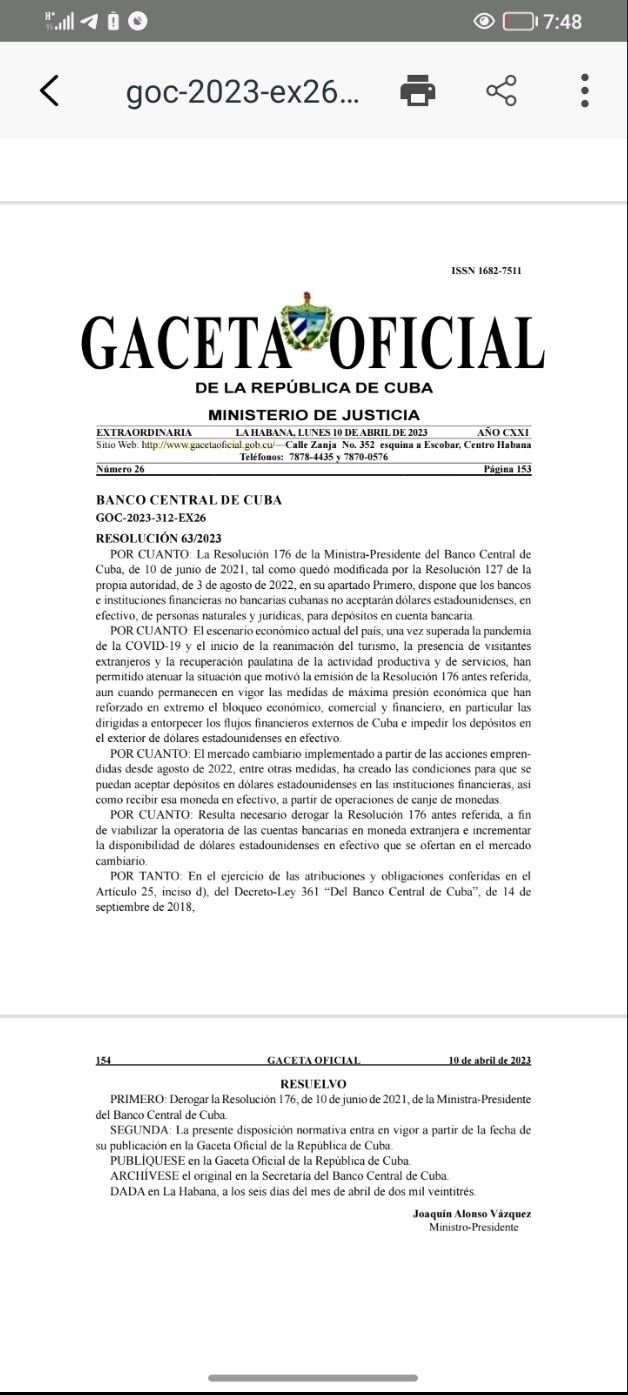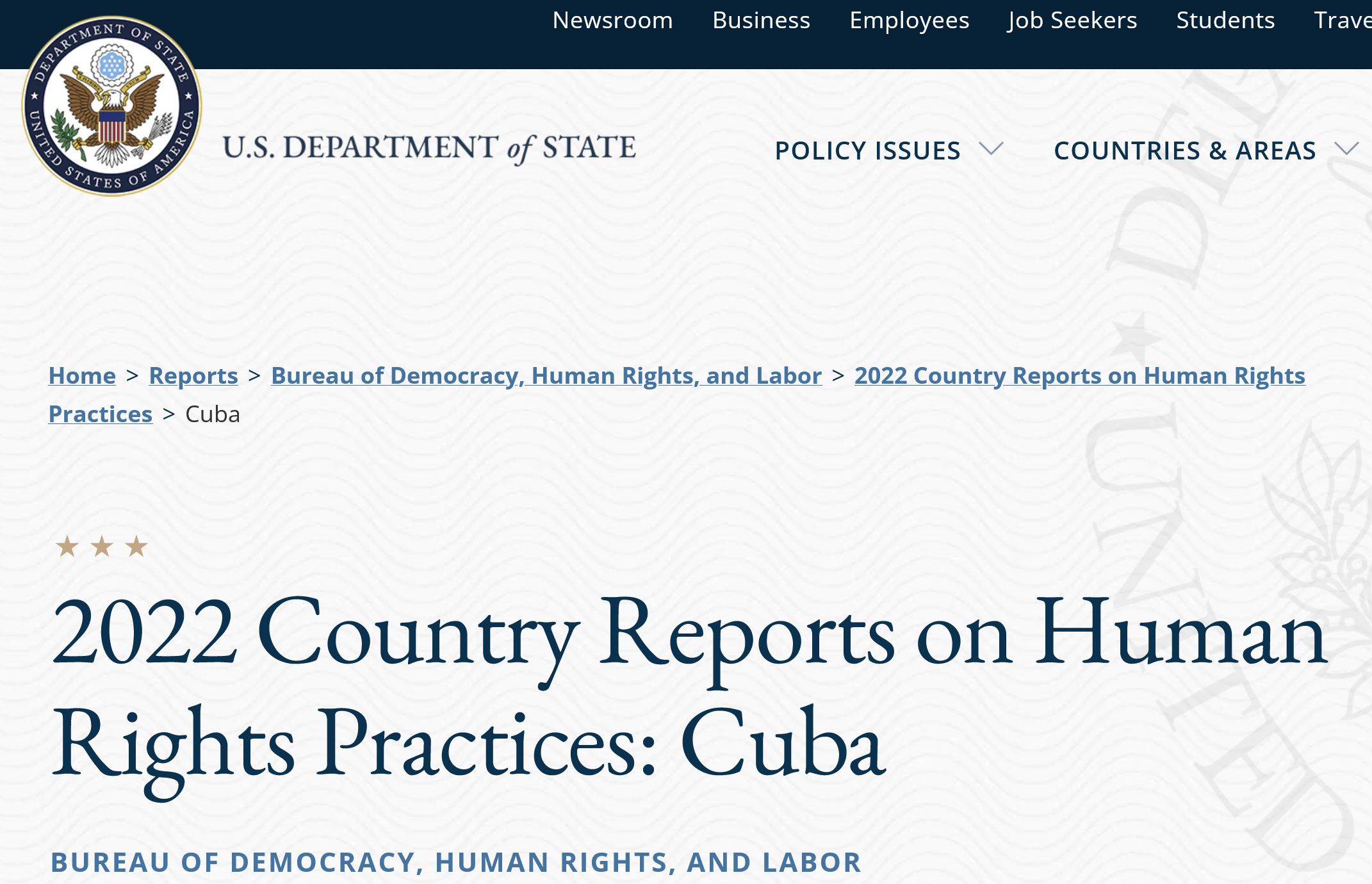International Comity: Defendant must obey European Commission (EC) blocking statute.
United State Comity: Defendant caught between two different laws.
United States Circuit Court rightly provided time for EC to determine its position. However, waiting three years was too long. Appeals Court ruled Circuit Court abused discretion- no judge wants to be labeled in that manner. International comity does not tolerate inaction for years.
MARIA DOLORES CANTO MARTI, AS PERSONAL REPRESENTATIVE OF THE ESTATES OF DOLORES MARTI MERCADE AND FERNANDO CANTO BORY V. IBEROSTAR HOTELES Y APARTAMENTOS SL [1:20-cv-20078; Southern Florida District; 21-11906 11th Circuit Court of Appeals]
Zumpano Patricios P.A. (plaintiff)
Bird & Bird (defendant)
Holland & Knight (defendant)
First Amended Complaint (2/24/23)
Defendant’s Motion To Dismiss Plaintiff’s Complaint And Memorandum Of Law (1/11/23)
Libertad Act Lawsuit Filing Statistics
02/28/2023- Joint SCHEDULING REPORT - Rule 26(f) by Enrique Canto Marti, Fernando Jose Ignacio Canto Marti, Graciela Maria Canto Marti, Javier Enrique Canto Marti, Maria Dolores Canto Marti, Roberto Jose Canto Marti (Patricios, Leon) (Entered: 02/28/2023)
02/24/2023- PAPERLESS ORDER: denying as moot the Defendant's motion to dismiss. 68 . The Plaintiff's amended complaint moots the motion to dismiss the prior pleading. See Taylor v. Alabama, 275 F. App'x 836, 838 (11th Cir. 2008) (noting that when the plaintiffs amended their complaint the defendants' motion to dismiss became moot). Signed by Judge Robert N. Scola, Jr. (cst) (Entered: 02/24/2023)
02/24/2023- First AMENDED COMPLAINT against Iberostar Hoteles Y Apartamentos SL, filed by Maria Dolores Canto Marti, Enrique Canto Marti, Fernando Jose Ignacio Canto Marti, Javier Enrique Canto Marti, Roberto Jose Canto Marti, Graciela Maria Canto Marti. (Attachments: # 1 Exhibit 1, # 2 Exhibit 2, # 3 Exhibit 3, # 4 Exhibit 4, # 5 Exhibit 5, # 6 Exhibit 6)(Zumpano, Joseph) (Entered: 02/24/2023)
02/21/2023- Scheduling Order and Order of Referral to Mediation: ( Jury Trial set for 2/12/2024 before Judge Robert N. Scola Jr.., Calendar Call set for 2/6/2024 09:00 AM in Miami Division before Judge Robert N. Scola Jr..), ORDER REFERRING CASE to Mediation. Signed by Judge Robert N. Scola, Jr on 2/21/2023. See attached document for full details. (cds) Pattern Jury Instruction Builder - To access the latest, up to date changes to the 11th Circuit Pattern Jury Instructions go to https://pji.ca11.uscourts.gov or click here. (Entered: 02/21/2023)
01/23/2023- Reset Deadline. Amended Complaint due by 2/24/2023. PER DE#70 (cds) (Entered: 01/24/2023)
Excerpt From First Amended Complaint
Iberostar’s main website, Iberostar.com (which includes derivative websites such as booking.iberostar.com and booking.iberostarvacation.com)—copyrighted by Iberostar—is interactive, capable of e-business and reaching the world, and accessible in the United States (including Florida). At a minimum, prior to the filing of the Original Complaint, U.S. residents, including Floridians, could access Iberostar’s website and book hotel accommodations at the Iberostar Imperial Hotel (which is on and part of the Subject Property). Moreover, at a minimum, prior to the filing of the Original Complaint, U.S. residents, including Floridians, could determine availability of hotel rooms at the Iberostar Imperial Hotel (which is on and part of the Subject Property) on their preferred dates, the applicable pricing, and the available room features (e.g. type of room, air conditioning, bathroom tub or shower), and reserve a room by using, upon information and belief, a U.S. credit card. See Composite Exhibit 1, Iberostar Screenshots.
The Subject Property has not been the subject of a certified claim under Title V of the International Claims Settlement Act of 1949 (22 U.S.C. § 1643 et seq.), nor has the claim to the Subject Property been settled pursuant to any settlement procedure. More specifically, Plaintiffs’ interest to the Subject Property is not the subject of a certified claim. Moreover, the remaining interest to the Subject Property (held by Rosa Canto Bory’s heirs and Rosa Zumpano’s heirs) is not the subject of a certified claim. 13 71. The value of Plaintiffs’ claim is well in excess of the Act’s $50,000.00 requirement. See 22 U.S.C. §6082(b). 72. Based on the aforementioned, Plaintiffs are entitled to all relief available under the Act, including actual damages, treble damages, prejudgment and post-judgment interest, costs and reasonable attorney’s fees, pursuant to 22 U.S.C. § 6082.
From Previous Plaintiff Filing: “1 On December 14, 2022, Iberostar Spain received a Commission Implementing Decision from the European Commission (“Decision”) on its application for authorization to respond to the Complaint in this action. In the Decision the European Commission authorized Iberostar Spain to move to dismiss this action, and specifically stated: “In the framework of such an exceptional authorisation, the Commission finds it relevant to make the following points: (a) The Commission recalls that the extra-territorial application of sanctions is an outright violation of international public law . . . . Therefore, the Commission considers that it would be against international law for the U.S. Court to exercise jurisdiction over the Applicant and an action in U.S. courts supporting such a claim is in the Union interest. (b) It is also in the Union’s interests that the U.S. Court has all the necessary elements at its disposal in order to declare its own lack of jurisdiction. This is not only desirable from a legal standpoint but it is also necessary in order to achieve the general policy objectives of Regulation (EC) No 2271/96 and protect the Applicant. U.S. courts have already dismissed other Helms-Burton lawsuits on jurisdictional grounds. (c) It is also in the Union’s interests that this case adds to the existing case law where U.S. courts dismiss Helms-Burton claims on lack of personal jurisdiction. In particular, the Commission considers it important that a default judgment in this case does not result in the creation of case law that is contrary to the interests of EU operators . . . .” The Decision expressed a need to build on the U.S. doctrine of international comity, while emphasizing that this Court does not have jurisdiction over Defendant, and it should restrain from exercising jurisdiction.”
21 November 2022
IHG and Iberostar sign a strategic alliance for resort and all-inclusive hotels in the Caribbean, Americas, Southern Europe and North Africa
InterContinental Hotels Group PLC (IHG or the Company) and Iberostar Hotels & Resorts (Iberostar) announce today a long term commercial agreement for resort and all-inclusive hotels. Iberostar is a family-run business based in Palma de Mallorca, Spain, with more than 65 years’ experience in the hospitality industry, an excellent reputation for operating resorts in outstanding locations, and a strong commitment to quality and sustainability. Through this strategic alliance, Iberostar will retain 100% ownership, preserving its autonomy and values. Up to 70 hotels (24.3k rooms) will be added to IHG’s system under the Iberostar Beachfront Resorts brand, which will become the 18th brand for IHG. This will boost IHG’s global system size by up to 3%. The first properties set to join the IHG system this December will give IHG guests increased choice in sought-after locations including Mexico, the Dominican Republic, Jamaica, Brazil and the Canary Islands (Spain). Further properties in Spain and other popular resort destinations in Southern Europe and North Africa are anticipated to join IHG’s system over the course of 2023 and 2024.
IHG guests will be able to look forward to memorable stays in award-winning hotels*, ranging from family friendly premium offerings to adult only luxury, in leading resort destinations, including: Iberostar Grand Paraiso (Riviera Maya, Mexico); Iberostar Selection Hacienda Dominicus (Bayahibe, Dominican Republic); Iberostar Grand Rose Hall (Montego Bay, Jamaica); and Iberostar Selection Anthelia (Tenerife, Spain). These add to IHG’s existing 260 resort properties that span brands including Six Senses, Regent, InterContinental, Kimpton, Hotel Indigo, Crowne Plaza, Holiday Inn and Holiday Inn Club Vacations. IHG has fewer than 20 resort properties in the countries where the Iberostar Beachfront Resorts properties are located. The agreement therefore significantly increases and broadens IHG’s resort footprint. The portfolio of Iberostar properties will gain access to IHG’s enterprise platform, including its distribution channels and the IHG One Rewards loyalty programme with more than 100 million members. IHG in turn will increase awareness of its current brands with a new set of travellers, and meet a clear desire from guests and loyalty members for more resort destinations and the option of all-inclusive stays.
In what is a large and high growth market segment, demand for resort and all-inclusive stays has been buoyed by increasing traveller desire for high quality experiences and stress-free holidays, particularly post-Covid, and the ability to access such stays as part of loyalty programme membership. The breadth of resort choices for travellers has also increased in recent years, with luxury and upper upscale destinations creating more wellbeing and sustainability-led experiences that tailor to changing guest expectations. Iberostar and IHG share many company values, including a passion for sustainability and responsible tourism, with Iberostar’s pioneering Wave of Change movement outlining clear aims to move towards a circular economy, promote the responsible consumption of seafood and improve coastal health. As part of the agreement, IHG will work with Iberostar to create opportunities for joint sustainability initiatives that align with IHG’s 2030 Journey to Tomorrow responsible business plan. The Iberostar Beachfront Resorts brand will be included in a new Exclusive Partners category in IHG’s brand portfolio, which will sit alongside its Suites, Essentials, Premium and Luxury & Lifestyle categories.
Keith Barr, Chief Executive Officer, IHG Hotels & Resorts, said: “As we continue to expand the footprint of our world famous brands, we are always looking at exciting, sustainable growth opportunities in areas that can further enhance our offer for guests and owners. Guests have told us of their wish for increased choice of resort and all-inclusive destinations within our brand portfolio. We are delighted to address that by working with such a well-respected, experienced and like-minded partner as Iberostar, and to see more amazing hotels join our system that continues IHG’s growth in so many of the world’s most attractive markets and destinations. Iberostar has successfully developed a leading presence in beachfront and all-inclusive properties in the Caribbean, Americas, Southern Europe and North Africa over many decades, and we are excited about the opportunities to further grow the brand’s footprint together. This agreement increases IHG’s system by up to 3%, which helps to deliver on our ambitions for system growth. We continue to explore further opportunities for growth with exclusive partners, demonstrating the strengths and attractiveness of IHG’s enterprise platform.”
Sabina Fluxá, Vice-Chairman and Chief Executive Officer, Iberostar Group, commented: “With this agreement, we set the path to continue the outstanding growth that began 40 years ago with the creation of the Iberostar brand and which has positioned us among the top resort brands in the world. The alliance with IHG combines our strengths, represents a decisive step forward in the distribution of Iberostar’s beachfront resorts, and reinforces our position as a benchmark in responsible tourism. By working together we will grow our portfolio and we are really looking forward to hosting IHG loyalty members in our collection of premium and luxury beachfront resorts and all-inclusive properties.”
Miguel Fluxá, Chairman, Iberostar Group, added: “This strategic alliance will enable Iberostar Beachfront Resorts to benefit from IHG’s industry-leading technology, deep skills and global scale. Retaining 100% ownership of Iberostar allows us to continue to generate differentiation in the hospitality industry with a long-term vision for our employees, clients, tour operators, distribution partners and local communities that have been loyal to us during all these years. We will continue to stay true to who we are, preserving our philosophies and values of quality and sustainability.”
Further details on the agreement and financial overview:
• The agreement gives IHG a licence to the Iberostar Beachfront Resorts brand. The agreement has an initial term of 30 years and the option to renew for additional terms of 20 years upon mutual agreement.
• The agreement is expected to add up to 24.3k rooms across 70 properties to IHG’s system over the next two years. Of these, 27 properties (8.2k rooms) still require additional approvals from third parties in order to join IHG. The total of up to 70 properties would be equivalent to growth of 2.8% on IHG’s global estate of 880.3k rooms at the start of 2022. The first rooms are expected to come into IHG’s system in December this year, with these representing approximately half of the total rooms subject to the overall agreement.
• The 70 properties are all beachfront resorts. They exclude Iberostar’s other operations, such as its smaller portfolio of urban hotels, and also exclude Iberostar’s interests in Cuba. The approximate geographic split of revenues from the selected portfolio of 70 hotels in 2019 was: Mexico 22%; Dominican Republic 13%; Jamaica 8%; Brazil 5%; Spain 40%; other EMEAA region locations 12%.
• A pipeline of six further Iberostar Beachfront Resorts properties, representing ~3k rooms, is also expected to be added to IHG’s pipeline. This pipeline will increase as IHG and Iberostar work together to grow the brand’s footprint through the long-term commercial agreement.
• The total gross revenue of the existing portfolio of 70 hotels was approximately $1.3bn in 2019, equivalent to growth of over 4% on IHG’s $27.9bn of total gross revenue. Under the agreement, IHG will receive marketing, distribution, technology and other fees in a manner similar to its existing asset light model.
• IHG’s fee structure will ramp-up over a period through to 2025 as the hotels increasingly integrate onto IHG’s platform. By 2027, representing year five of the agreement, annual revenue recognised within IHG’s fee business is expected to be in excess of $40m, with a broadly similar amount additionally recognised within System Fund revenues.
• Reflecting integration investment, the net impact on IHG’s operating profit from reportable segments is expected to be modestly negative in 2022 and 2023. It is then expected to turn positive in 2024, before ramping up significantly from 2025 with the final step up in the fee structure and the expected shift in distribution channel mix.
































